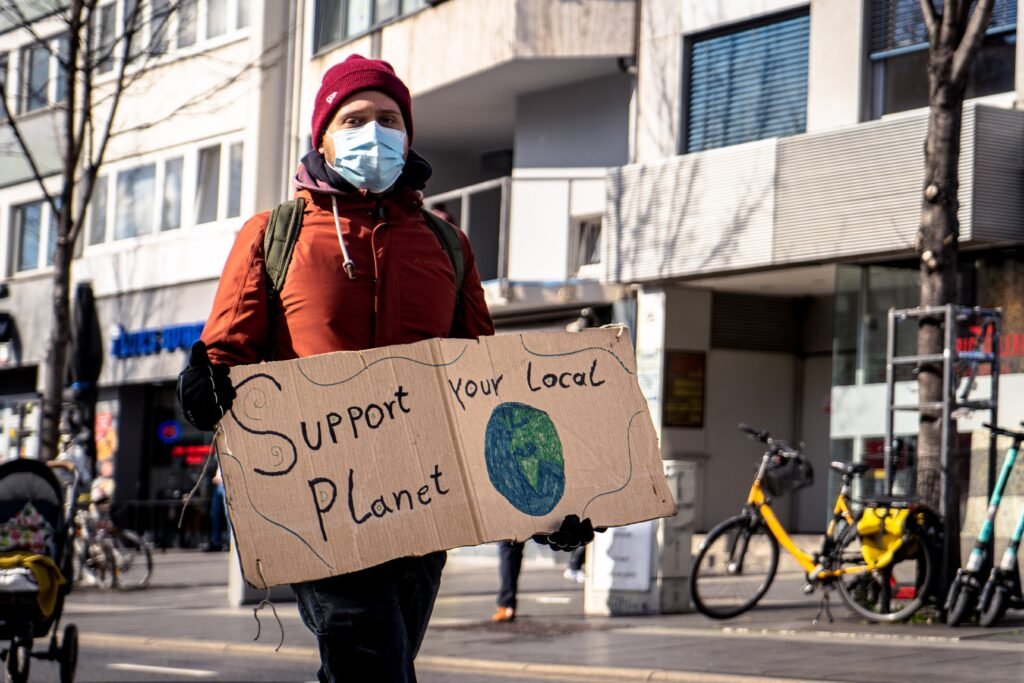One of the horrible ironies of the climate problem is that some of the most stunning and well-known locations on Earth are also among the most at risk. As a result, these areas will suffer a severe loss of tourism as a result of rising temperatures, an increase in extreme weather events, the drying up of water sources, and the decline of natural habitats. About 8% of the world’s emissions are attributed to tourism, which further worsens the climate catastrophe by causing overdevelopment and the degrading of natural regions.
In 1980, the first World Tourism Day took place. The Statutes of the Organization that became the United Nations World Tourism Organization (UNWTO) were signed on September 27, which is the designated day. The UNWTO’s international regions alternate in hosting the official celebrations, which are always centered around a timely and pertinent theme. As the Global Day of Observance for Tourism, it provides an opportunity to highlight the industry’s critical role in fostering peace and prosperity.
Tourism on the agenda for SDGs
The UNWTO emphasizes the need for more and better-focused investments for people, the earth, and prosperity on World Tourism Day 2023. The international community, governments, multilateral financial institutions, development partners, and private sector investors will be urged to come together behind a new tourist investment strategy on World Tourism Day in 2023.
SDG objective 8.9 of the 2030 Agenda for Sustainable Development states that by 2030, “policies to promote sustainable tourism that creates jobs and promotes local culture and products shall be devised and implemented.” SDG objective 12.b, which seeks to “develop and implement tools to monitor sustainable development impacts for sustainable tourism that creates jobs and promotes local culture and products,” also emphasizes the significance of sustainable tourism. A further option for achieving SDG target 14.7, which states that “by 2030, increase the economic benefits to Small Island Developing States and least developed countries,” is tourism.
Tourism as a way to generate socio-economic benefits
All sectors and stakeholders (tourists, governments, host communities, tourism enterprises) must work together on sustainable tourism in order for it to be effective because tourism impacts and is impacted by a wide range of diverse activities and industries. By addressing the demands of its ecological surroundings and the local communities, sustainable tourism takes into account its past, present, and future economic, social, and environmental implications. This is accomplished by safeguarding natural habitats and wildlife when planning and running tourism-related activities, giving visitors only genuine experiences that do not appropriate or inaccurately represent local heritage and culture, and generating immediate socioeconomic benefits for nearby communities through job creation and training. Tourism sectors are deemed to be successfully sustainable when they can satisfy traveler needs while causing little harm to the environment and providing long-term employment for locals.
The well-being of the community is improved when visitors choose to use sustainable tourism providers and when governments take action to support those providers as well. Sustainable tourism may boost the local economy, create jobs, and give funds for community initiatives. Mass tourism, on the other hand, which places no emphasis on sustainability, tends to be more exploitative and may unintentionally affect indigenous people and local cultures.
Role of Sustainable Tourism in saving the environment
There are many distinct aspects to sustainable tourism, the majority of which are opposed to more conventional mass tourism that is more likely to cause environmental deterioration, cultural loss, pollution, negative economic effects, and over-tourism. Ecotourism emphasizes responsible travel to unspoiled landscapes that prioritize environmental preservation. By carefully maintaining its own property and respecting or enhancing neighboring natural protected areas (or regions of high biological value), a sustainable tourism organization helps and contributes to biodiversity conservation. The majority of the time, this appears to be monetary recompense for conservation management, but it can also involve making sure that tours, attractions, and infrastructure don’t disrupt natural ecosystems.
Wildlife conservation is a crucial element of sustainable tourism and is one of the most important advantages of the industry. It reduces the destruction of natural habitats and promotes the well-being of animals when decisions are made with the needs of the local species in mind. Importantly, sustainable tourism promotes the preservation of wild animals in their natural habitats rather than keeping them in captivity for the purpose of serving as a tourist attraction. In community-based tourism, locals open their villages to visitors by inviting them to do so. It frequently occurs in rural or developing nations and occasionally involves overnight stays. In addition to fostering connections and allowing visitors to learn in-depth information about local environments, wildlife, and traditional customs, this kind of tourism also directly benefits the host communities economically.

The emphasis on conserving the environment is another important advantage of sustainable tourism. Sustainable lodging establishments, including hotels, will employ eco-friendly supplies and take measures to reduce the amount of waste they generate or the resources they consume. Renting a bicycle as opposed to driving could be a sustainable form of transportation. While this is going on, sustainable restaurants might serve more vegetarian and vegan alternatives and source their food locally.
Challenges of Responsible Tourism
The provision of actual ecologically sustainable tourism is one of the major challenges of sustainable tourism. The topic of sustainable tourism has received sufficient discussion, but there hasn’t been enough concrete advice and direction on how to put the theory into practice. Businesses moving in the direction of sustainability require suggestions that are both economically feasible and practical about the terminology and practices of sustainable tourism.
The local community is the backbone of sustainable tourism, but without a clear plan and strategy, this chance could be jeopardized. Involving the community requires caution so that we don’t make unequal decisions. Another key aspect of community participation is decision-making. To maximize the socioeconomic benefits of tourism, it is crucial to keep in mind that community involvement in decision-making is not only required but also desired.

Government-controlled protected areas like national parks, wildlife conservation areas, and so forth are included in a significant number of sustainable activities. Additionally, since sustainable tourism affects the local population, equitable income distribution is crucial. Since privileged groups of people from the community are frequently the beneficiaries, fair income distribution is a major obstacle to sustainable tourism.
Call to action
The Sustainable Development Goals, the UN’s blueprint for a better world by 2030, are highlighted in this year’s World Tourism Day 2023 by the UNWTO under the topic “Tourism and green investment,” which emphasizes the need for additional and better-targeted investments. Instead of making only conventional investments that support and foster economic growth and productivity, now is the moment for novel and creative solutions. Individuals can celebrate this day by sharing their sustainable tourism activities. This World Tourism Day will be the day that the international community, governments, development partners, and private sector collaborate to make tourism in a sustainable approach.
References
https://www.unwto.org/world-tourism-day-2023
https://www.unwto.org/news/world-tourism-day-2023-to-emphasize-investments-for-a-sustainable-future
https://www.theguardian.com/environment/2021/dec/02/tourism-industry-climate-crisis
https://sdgs.un.org/topics/sustainable-tourism
https://www.treehugger.com/what-is-sustainable-tourism-and-why-is-it-important-5114484
https://www.breakingtravelnews.com/focus/article/world-tourism-day-september-27th-2023/

